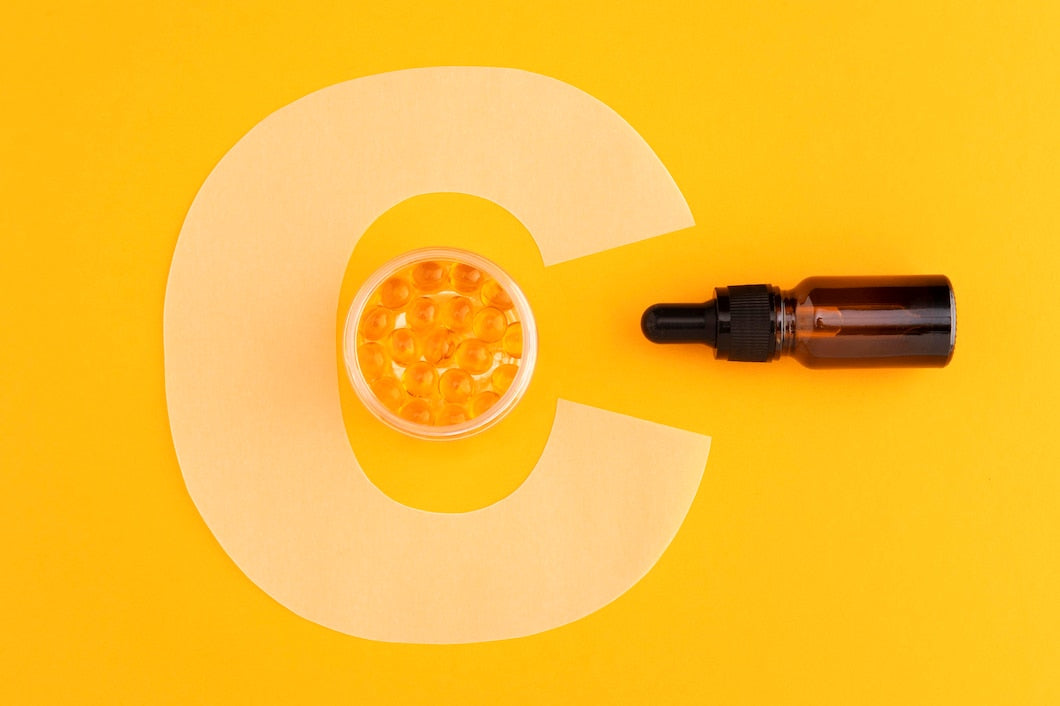
Vitamin C in Skincare: The Secret to Bright, Glowing, and Healthy Skin
If there’s one skincare ingredient that dermatologists and beauty experts universally recommend, it’s Vitamin C. Known for its brightening, anti-aging, and protective properties, Vitamin C has earned its place as a must-have in modern skincare routines. But how exactly does it work? And what’s the best way to use it for maximum benefits? Let’s dive into the science and magic of Vitamin C in skincare.
What is Vitamin C in Skincare?
Vitamin C (also called ascorbic acid) is a powerful antioxidant. When applied topically, it neutralizes free radicals (unstable molecules caused by UV rays, pollution, and stress) that damage skin cells. This makes Vitamin C an essential shield against premature aging and dullness.
It’s available in serums, creams, and toners—though serums are considered the most effective due to higher concentration and better absorption.
Benefits of Vitamin C for Skin
-
Brightens Skin Tone
-
Vitamin C reduces dullness and evens out skin tone, giving you a radiant, glowing complexion.
-
-
Fades Dark Spots & Pigmentation
-
Helps reduce melanin production, minimizing hyperpigmentation, acne marks, and sun spots.
-
-
Boosts Collagen Production
-
Stimulates collagen, which improves skin elasticity and reduces fine lines and wrinkles.
-
-
Protects Against Sun Damage
-
Acts as an antioxidant shield, protecting skin from harmful UV rays (but doesn’t replace sunscreen).
-
-
Reduces Redness & Inflammation
-
Calms irritated skin, making it beneficial for sensitive and acne-prone skin.
-
-
Improves Skin Texture
-
With consistent use, skin becomes smoother, softer, and firmer.
-
How to Use Vitamin C in Your Skincare Routine
✅ Best Time to Use: Morning (to protect against environmental stressors).
✅ Layering Tip: Apply after cleansing and toning, before moisturizer and sunscreen.
✅ Concentration Levels:
-
Beginners: 5–10% Vitamin C
-
Regular users: 15–20% Vitamin C
✅ Pair with Sunscreen: Vitamin C enhances sun protection, so always follow up with SPF.
✅ Avoid Mixing with: Retinol and AHAs/BHAs at the same time (can cause irritation). Instead, use Vitamin C in the morning and retinol at night.
Types of Vitamin C in Skincare
-
L-Ascorbic Acid – Most potent form, but unstable (oxidizes quickly).
-
Sodium Ascorbyl Phosphate – Gentler, stable form suitable for sensitive skin.
-
Magnesium Ascorbyl Phosphate – Brightens and hydrates, commonly used in creams.
-
Ascorbyl Glucoside – Stable form often used in serums.
Tips for Choosing the Right Vitamin C Product
-
Look for dark, airtight packaging to prevent oxidation.
-
Start with lower concentrations if you’re new.
-
Pair with Vitamin E or Ferulic Acid—boosts stability and effectiveness.
-
Discontinue use if you experience stinging, redness, or irritation.
Who Should Use Vitamin C?
✅ Great for all skin types, especially:
-
Dull and tired-looking skin
-
Uneven skin tone or dark spots
-
Mature skin with fine lines and wrinkles
-
Oily or acne-prone skin needing antioxidant protection
⚠️ Caution for very sensitive skin: Patch test first, as strong Vitamin C serums can sometimes cause irritation.
Lifestyle & Diet Tip
Topical Vitamin C is powerful, but don’t forget dietary Vitamin C from oranges, kiwis, strawberries, and bell peppers—it supports skin health from the inside too.
Conclusion
Vitamin C is truly a superstar skincare ingredient. From brightening your complexion to protecting against environmental damage and boosting collagen, it addresses multiple skin concerns at once. The key is consistency—regular use of a well-formulated Vitamin C product can transform your skin and give you that natural, radiant glow.